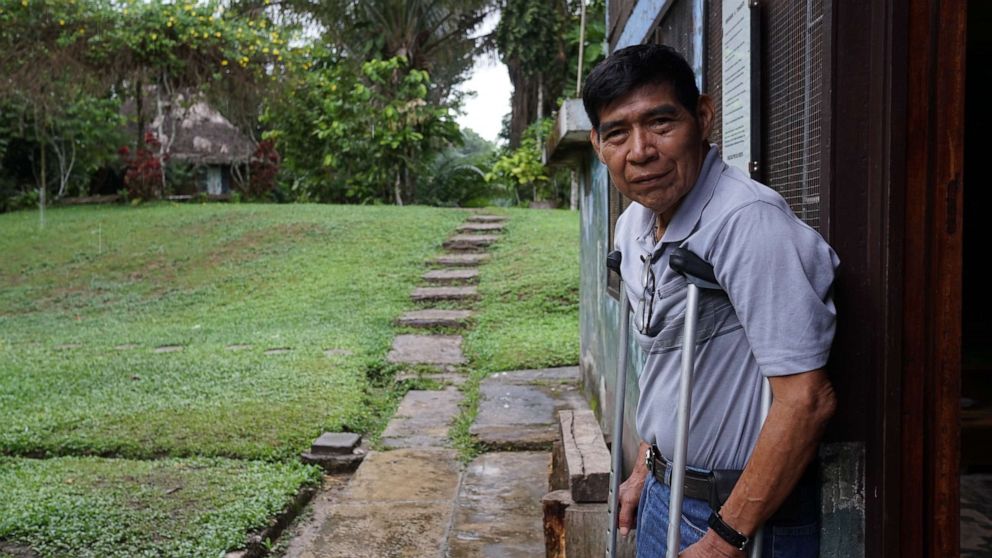Santiago Manuin, tireless defender of the Amazon rainforest, succumbs to COVID-19
"We're part of this natural world, and so we must defend it," he said.
Santiago Manuin, one of the most celebrated defenders of Peru's Amazon rainforest and the leader of the Awajún tribe, whose vast and besieged territory spans the country's mountainous northern region along the Ecuador border, died on Wednesday of COVID-19. He was 63.
Manuin devoted his life to defending his tribe and their ancestral land, which in recent decades had endured illegal gold mining and logging, persistent threats linked to narco-trafficking and state-sanctioned oil and gas operations.
In a 2019 interview with ABC News, Manuin described the significance of his tribe's territory and the importance of defending it.
"Our land is tied to our existence as a people," he said. "It's an essential space where we build a life for our families. As Awajún, our forests give us natural resources and animals. We're part of this natural world, and so we must defend it."
In 2009, Manuin nearly died defending Awajún territory after he was shot eight times by Peruvian security forces. The incident, referred to as "the Bagua Massacre," occurred when police fired on thousands of Awajún and Wampis tribespeople who were blocking a jungle highway to protest a U.S.-Peru trade agreement that would've opened up land in the Amazon for gas, oil and lumber extraction. More than 30, both officers and natives, died in the clash.

"The Peruvian government behaved badly, and regretfully we both learned lessons -- the Awajún people and the Western society," Manuin recalled. "I keep learning the importance of dialogue. Violence brings no solutions."
A stoic champion for his tribe of more than 50,000, Manuin rejected the commodification of the Amazon's natural resources, which are deeply woven into the Awajún cosmovision.
"For the Westerner, the Indigenous person is an impediment to development because we refuse to destroy the land. That's why they label us anti-development," he said. "Indigenous peoples are not anti-development. We protect the forest and live for the forest. Our spirituality is tied to it. We don't need to go to the largest churches to pray. We pray within this natural world. We live in this plenitude."
Manuin, lionized by many in his own country as a social justice crusader and fierce environmentalist, was thrust into an international spotlight in 2018 when he crowned Pope Francis with a feathered headdress during the pontiff's visit to the Amazon region as part of the Catholic Church's Amazon Synod.
The Awajún tribe is one of the largest in Peru's Amazon, and their territory spans four distinct regions. Manuin served as president of the Awajún Permanent Council, the tribe's largest governing body. Under his leadership, the Awajún have endeavored to create an autonomous territorial government, a quasi-independent region with the right to protect its territory from outsiders.
"We occupy 30,000 square kilometers. We'll be able to self-govern and demand that the Peruvian State respects the totality of our territory and forbids any extractive company from entering without prior consultation," Manuin said.
In 1994, Manuin won the international Reina Sofia Prize for his defense of the Amazon, and in 2014 he was awarded Peru's National Prize for Human Rights for a life lived in service of Indigenous peoples and the rainforest.
"I was consecrated in the defense of my forest and the fundamental rights of my people. I was consecrated despite everything and had to accept that reality. I have a very big vision. And this vision is what I am completing now -- and with total pleasure," Manuin said.
At least 9,800 in Peru have died from the novel coronavirus, which has devastated tribes in the vast Amazon region as extreme poverty, limited access to health care and communal lifestyles incompatible with social distancing have left them particularly vulnerable.




